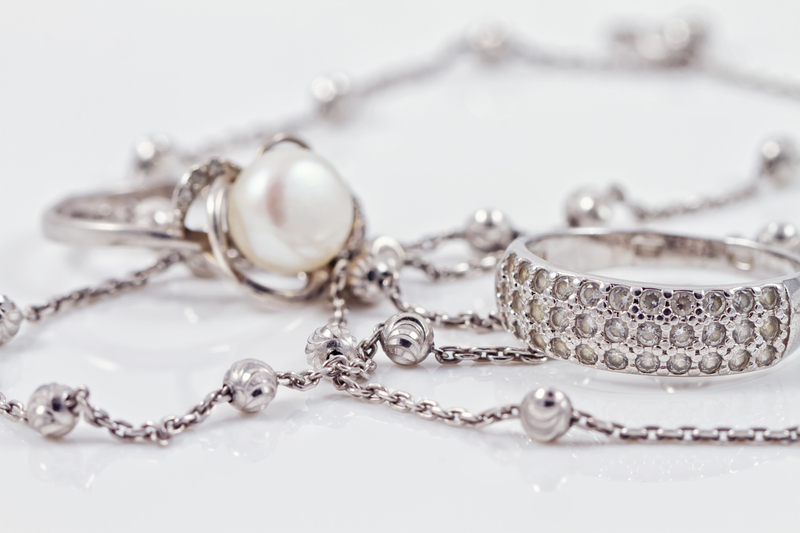Keeping Your Freezer Fresh and Safe While Not in Use: The Ultimate Guide
A well-maintained freezer is the backbone of any kitchen, enabling you to store food, reduce waste, and save money. However, there may be times when you need to leave your freezer unused for an extended period--during renovations, vacations, moving houses, or seasonal downtime. Ensuring your freezer remains fresh and safe while not in use is crucial for both appliance longevity and sanitary reasons. In this comprehensive guide, we'll explore the best practices and expert tips for keeping your freezer fresh, clean, and safe when it's powered down or idle.

Why It's Important to Maintain a Freezer During Inactivity
Many people assume that if a freezer isn't actively being used, it doesn't require attention. However, failing to properly manage your freezer during periods of inactivity can lead to several issues, including:
- Odor build-up: Leftover food particles and moisture can result in strong, unpleasant smells.
- Mold and mildew: A damp, closed environment is a breeding ground for mold and mildew.
- Pest attraction: Even small traces of food can attract insects and rodents.
- Decreased efficiency: Neglect can affect freezer performance when you try to use it again.
- Shortened appliance lifespan: Improper care during idle times may reduce your freezer's durability and effectiveness.
Taking proactive steps ensures your freezer remains fresh and safe while not in use, saving you from costly repairs and inconvenient surprises down the line.
Step-by-Step Guide to Preparing Your Freezer for Inactivity
Step 1: Unplug and Defrost the Freezer
Before you leave your freezer unused, it's vital to unplug and defrost it. This step prevents water damage and stops any residual ice from causing odors or mold. Here's how:
- Empty the freezer: Remove all food items. Discard expired items and give away or consume what you can.
- Unplug the appliance: Disconnect from the power source to stop further cooling.
- Defrost properly: Leave the freezer door open to allow ice to melt naturally. Place towels or a shallow pan to catch melting water and prevent floor damage.
- Speed up the process: Use a hairdryer or bowls of hot water to accelerate defrosting, but avoid sharp objects which can damage the interior lining.
Step 2: Deep Clean All Surfaces
Odors and bacteria can linger on surfaces, so an intensive cleaning is essential for keeping your freezer clean and fresh while not in use:
- Wash with mild soap: Mix warm water with mild dish soap. Wipe down shelves, drawers, and walls thoroughly.
- Sanitize with vinegar or baking soda: Vinegar is a strong natural disinfectant, while a baking soda paste effectively neutralizes odors.
- Clean the exterior: Don't forget to wipe the outer sides, handles, and rubber gaskets with a damp cloth and soapy water.
- Dry completely: Use a clean, dry towel to remove all moisture. Leaving any wetness behind can encourage mold growth.
Step 3: Neutralize Odors and Prevent Mold
Now, let's ensure your freezer doesn't develop musty scents or hidden fungi during downtime:
- Leave the door slightly open: Use a rolled-up towel or block to prop the door open slightly. This encourages airflow and inhibits mold.
- Place odor absorbers inside: An open box of baking soda, activated charcoal, or coffee grounds inside the compartment will absorb lingering smells.
- Check and clean drain holes: Some freezers have a drain for thawed water. Make sure it's unclogged and dry.
Step 4: Protect the Appliance from Pests and Dust
Unused appliances can become attractive to insects and rodents looking for a dark, safe haven--prevent this with a few simple precautions:
- Seal openings: Check the gasket and any vent or pipe openings. Block any obvious gaps with tape or appropriate material.
- Cover with a breathable cloth: Drape a clean, breathable cover over the freezer to prevent dust while still allowing airflow.
- Avoid plastic sheeting: Plastic traps moisture and can increase the risk of mold inside the freezer cabinet.
Ongoing Maintenance to Keep Your Idle Freezer Safe
Regularly Check the Freezer
Even when your freezer is out of commission, perform monthly checks:
- Inspect for odors or mold: Give it a quick sniff and visual check for early signs of moisture or biological growth.
- Confirm the door remains ajar: If you're using a towel or wedge, make sure it hasn't slipped.
- Refresh odor absorbers: Replace baking soda or charcoal every 2-3 months, or if you notice lingering smells.
Location Matters!
The place where your freezer sits while unused greatly affects freshness:
- Choose a cool, dry area: Humid basements or garages encourage condensation and rust.
- Keep away from direct sunlight: Excessive heat can warp plastic components and accelerate deterioration.
Don't Store Items Inside
It may be tempting to repurpose the empty space, but avoid using your unplugged freezer for storage, especially for perishables or anything attracting bugs.
Preparing Your Freezer for Reuse
When you're ready to put your freezer back into use, a few quick steps ensure it's safe and fresh:
- Double-check for debris, pests, or mold: Clean away any dust or new spores.
- Wipe all surfaces: Quick wipe-down with a vinegar solution to refresh the interior.
- Reinstall shelves and drawers: Make sure everything's dry and secure.
- Plug in and allow to cool: Run the freezer empty for several hours to reach optimum temperature before storing food.
- Restock and organize food properly: Use airtight containers and label all items with dates to keep the freezer odor-free and organized moving forward.
Frequently Asked Questions About Keeping Freezers Fresh and Safe When Not in Use
Can I keep my freezer plugged in and empty?
Yes, but it's inefficient and can lead to odors if left empty for long periods. If you plan on not using it for more than a couple of weeks, unplugging and cleaning is ideal for safely storing your freezer while not in use.
Is it safe to leave the freezer door closed while unplugged?
No. A sealed, unpowered freezer is the perfect environment for moisture and bacteria to create bad smells and even mold. Always leave the door open slightly.
What are the best natural odor absorbers?
Baking soda, activated charcoal, and coffee grounds are highly effective at absorbing and neutralizing freezer odors without adding their own scent.
How often should I check an idle freezer?
For freezers left unused for more than a month, monthly inspections are recommended to ensure no unpleasant surprises.
Can leaving a bowl of vinegar inside help?
Yes. A small bowl of vinegar can both disinfect and absorb odors, making it a reliable addition to your odor-fighting arsenal.
Tips for Long-Term Freezer Storage and Freshness
- Label the Appliance: Attach a note indicating the date unplugged and cleaned, and reminder of when to check next.
- Clean the Coils: Use a vacuum or brush to remove dust from the exterior coils to increase efficiency and prevent dust buildup.
- Store User Manual Nearby: For quick reference when restarting the appliance, keep your owner's manual accessible.
- Use Dehumidifiers: In especially humid climates, a small room dehumidifier can help minimize condensation and mold risks around your freezer.

Eco-Friendly and Safe Disposal If Needed
Occasionally, a freezer's downtime is indefinite. If you decide not to reuse your appliance, disposing of it safely and responsibly is essential:
- Check local regulations: Many areas have rules about refrigerant and appliance disposal.
- Contact utility companies: Some energy providers offer free or discounted recycling services for old freezers.
- Donate working units: If your freezer is in good condition, consider donating to a local charity or organization in need.
- Remove doors before disposal: Prevent accidental entrapment by removing the freezer door before sending it to the landfill or recycling center.
Conclusion: Keep Your Freezer Fresh, Safe, and Ready for Use
Keeping your freezer fresh and safe while not in use requires just a few thoughtful steps, but the long-term benefits are invaluable. From preparing your freezer for downtime with a thorough clean and drying process, to ongoing monthly checks and re-preparation for use, following these best practices ensures your appliance remains odor-free, sanitary, and in tip-top shape for years to come. Protect your investment--and your peace of mind--by making freezer upkeep part of your routine, whether it's in active use or temporarily idle.
Ready to give your freezer a new lease on life? Start today, and enjoy the confidence of a fresh, safe appliance waiting for when you need it most!



